Premium Only Content
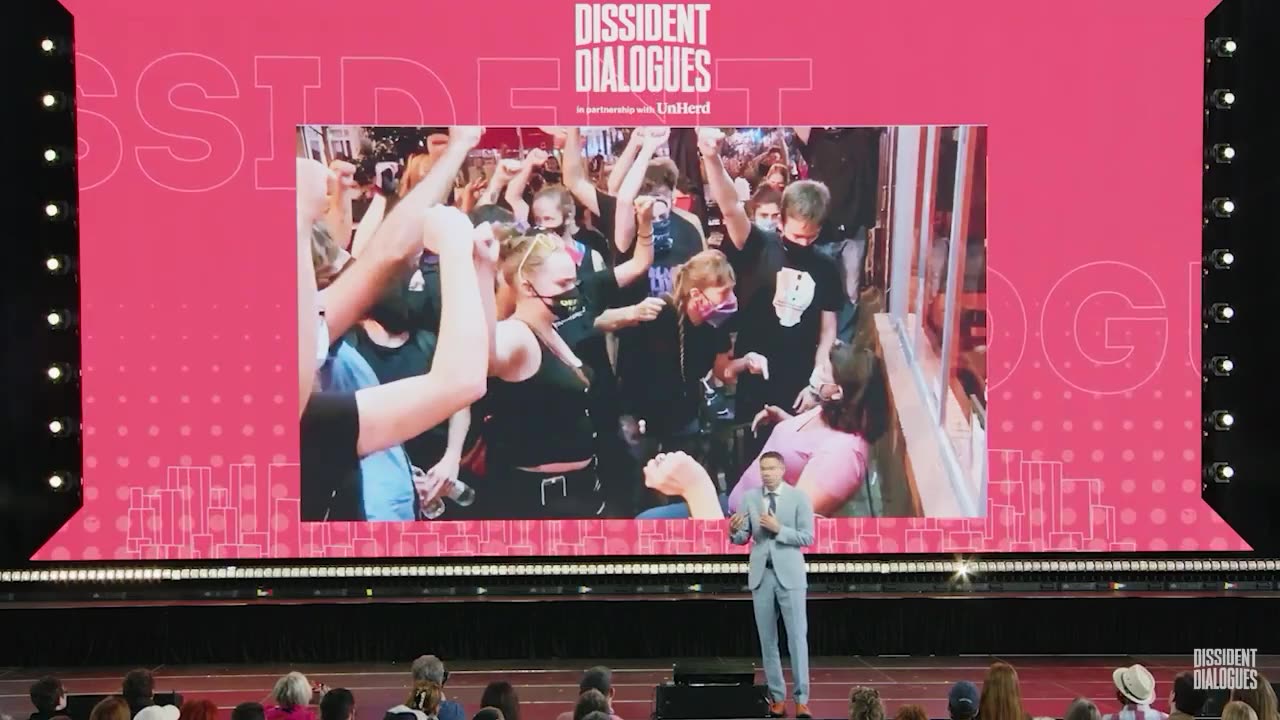
Michael Shellenberger | Dissident Dialogues
I think we can all agree that America has some really big problems.
The number of Americans dying every year from drug poisonings or drug overdoses has gone from 20,000 in the year 2000 to over 112,000 last year. That's 50 percent more dying annually than the total number of Americans who died in the Vietnam War.
The number of people crossing our border illegally has quadrupled since 2020.
And the percentage of students who are chronically absent from school rose from 15 to 25 percent between 2019 and last year. In the big states of California, Florida, and New York, it's 30 percent or higher.
These problems may seem unrelated. The increase in drug deaths has its roots in the opioid crisis. The rise in student absences is related to lockdowns during COVID. And you can start to wonder if these are just disconnected problems.
But from another point of view, each of these problems results from not enforcing basic laws, whether against illegal drug use, border enforcement, or student truancy.
The reason is that, as a society, we've decided that it's cruel to enforce these laws: cruel to crack down on people that are coming here to seek asylum or opportunity; cruel to crack down on addicts; and cruel to try to get kids who are suffering from other problems in their home life to come to school.
But from another perspective, it's much more cruel not to enforce these laws. The deaths that are occurring unnecessarily on the streets could be avoided if we intervened in people's lives.
The chaos on the border has led to a very significant increase in human trafficking along with a substantial amount of chaos. And leaving kids in bad home environments can lead to abuse that would otherwise be detected.
I agree that just enforcing these laws is not good enough. We've got to deal with the underlying causes of the chronic student absenteeism. We've got to have a functioning mental health care system in our country so people who are suffering from substance use disorder can get the help that they need. And we need national unity in dealing with immigration.
But not enforcing these laws means that we don't ever get to those solutions, and enforcing them is the first step towards getting kids back into school and on the right track. Addicts often require the threat of jail and coercion to get clean. And the border crisis shows that you need to enforce the laws for legal immigration to mean anything.
It all raises the question: Why did so many people decide that it was crueler to enforce the law than to not enforce it?
I think the first reason is that many of the people who decided that they didn't want to implement the laws or even that we should defund law enforcement are folks from communities that don't have a significant problem with violence.
Don't get me wrong. In my neighborhood, the Berkeley Hills, when my neighbors call 911, they expect that the police will come right away. Every single officer on the beat should be at their house as soon as they call 911.
But it just doesn’t happen as often as it does in a high-crime neighborhood, and so we forget the need for that kind of law enforcement.
I think the other issue, though, is just that we're highly selective in how we think about these problems. The number of black Americans killed by the police in the year 2022 was just 36 while 20,000 black Americans were killed that year by illegal drugs.
So our priorities are warped precisely because we've come to see police as the problem, not the solution.
Now that may explain why we don't fully appreciate the police, but it also doesn't really get at the underlying change in our values. Jonathan Haidt's famous book on moral foundations describes how the values of progressives have shifted towards care.
But this explanation doesn't fully explain why you would care so disproportionately for the 36 African Americans killed by the police and not for the 20,000 who were killed by illicit drugs.
To understand that, I think we have to look back and realize that since we were children, the entertainment media, the news media, and our history lessons have emphasized this. The police are sinister figures. And we see the heroes of society being arrested for standing up to them.
The media constructed a sense that law enforcement is done to oppress people rather than to keep them safe. When we commit civil disobedience, we’ve turned ourselves into heroes.
Similarly, if you look at the shift in films over the last 30 years, the break comes with the movie “Unforgiven,” where law enforcement and civilizing the West become viewed as sinister activities.
Today, police officers are almost exclusively represented as the bad guys in Hollywood movies. They're the ones chasing after fleeing slaves or feeling conflicted or guilty about having messed up a situation around mental health, as was the case with “Guilty.”
The result is that we've constructed a cartoon picture of the world, particularly for young people, where there's just victims and oppressors. That picture puts the observer in the role of the rescuer tasked with saving victims from evil oppressors.
That's a very different story than the classical story that our civilization was based on, known as the “hero's journey” story. In the hero's journey story, everybody's life is about overcoming adversity and victimization until you reach that really dark point of personal death and start to reconstruct who you are as a person. It's a story of overcoming.
The most important song of the civil rights movement is “We Shall Overcome,” not “We Shall Remain Victims Of Oppression Forever.”
Think about your personal life. When you go to therapy or do family therapy or couples therapy, you learn that life is more complicated than that.
You may be familiar with Stanley Karpman’s great “drama triangle,” which he invented in 1968. His idea was that we play these roles unconsciously. We find ourselves in the role of the victim. I'm “playing the victim” in order to get something I want. Or I’m “playing the persecutor” in order to demand something. Or I’m “playing the rescuer” to save things.
What Karpman pointed out is that these roles shift in an instant. Stop a man from beating his wife and suddenly you might discover, as I did once, that you have been cast in the role of the persecutor. The police officer goes from somebody rescuing you to persecuting you.
This peculiar narrowing of our roles of wanting to play the rescuer has led us to overestimate our powers and take on new ones we shouldn't have. Those include the power to silence others. And so what we've seen is a huge increase of young people in particular who say that some speech constitutes a kind of violence.
And so there's a significant amount of confusion across the Western world around speech as physical and physical acts being justified as freedom of expression. We see this happening dramatically in New York at this very moment.
One out of 10 college students say that they themselves were disciplined or threatened with saying things that 26 percent of them had said in their dorm rooms. The traditional boundaries of privacy and public life are breaking down.
Some of this is clearly due to social media. Recently, Haidt has convincingly shown that these big increases of anxiety, particularly among the young, came after the widespread adoption of smartphones and social media.
You can also see a desire to express our goodness as rescuers by showing awareness and sensitivity to the issues that we were trained to be sensitive to. And you can see the ways that these things have had an effect, mostly on progressives or liberals, who the people who identify as the most compassionate in society.
But there are other trends going on that just as important. One of the most significant is the declining belief in traditional religions. The result of this declining faith in traditional religions has been an increase in anxiety. This has held across multiple studies over time.
The evidence is pretty strong at this point that not having a religious faith creates a lot of anxiety, including about what happens after we die. “The problem of disbelieving in God is not that man ends up believing in nothing,” said Chesterton. “Alas, it's much worse. He ends up believing anything.”
We've seen people start to engage in behaviors that a previous generation would have seen as particularly humble, including behaving in a rescuing fashion that is so intense and inappropriate that we start to see demands for things like increased censorship.
The number of Democrats who say that the government should be involved in censoring speech online rose from 40 to 70 percent over the last five years.
And that boundary between what is considered speech and what is considered real-world violence is breaking down. You can see folks who might strongly favor censorship of things engaging in physically intimidating behaviors like these.
I think many of those people raising their fists...
-
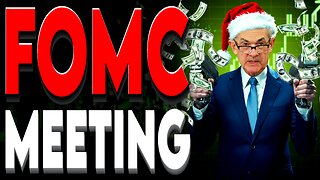 2:15:34
2:15:34
Matt Kohrs
4 hours agoFed Powell Speech & FOMC Rate Decision
9.91K2 -
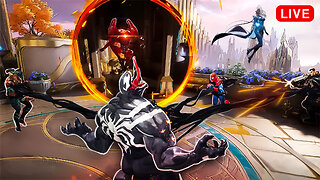 LIVE
LIVE
StoneMountain64
3 hours agoThe MOST hyped game of the YEAR
235 watching -
 1:50:12
1:50:12
The Quartering
18 hours agoTim Pool SELLS TO DAILY WIRE? Never Eat Hot Dogs Again, Drones & More
74.3K19 -
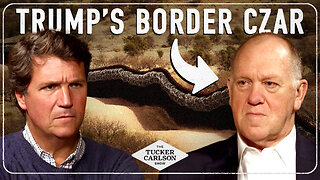 1:17:48
1:17:48
Tucker Carlson
4 hours agoTom Homan’s Plan to Destroy the Cartel Empire, End Child Trafficking, and Secure the Border for Good
113K135 -
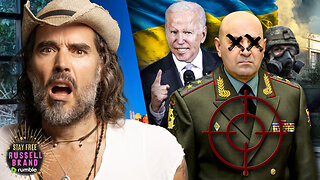 1:06:28
1:06:28
Russell Brand
6 hours agoWho Ordered the Hit on Russia’s General Krylov? - SF516
131K243 -
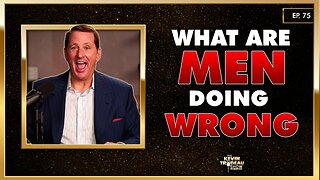 54:50
54:50
The Kevin Trudeau Show
5 hours agoWhat Men Do Wrong In Relationships | Ep. 75
11.9K4 -
 12:41
12:41
Gun Owners Of America
4 hours agoWe're Fighting Back Against Mexico In Court!
19K4 -
 2:57:11
2:57:11
The Charlie Kirk Show
4 hours agoThe CR Quagmire + An Hour of PBD + Catholic in Hollywood | Davis, Patrick Bet David, Rep. Burlison
119K32 -
 32:54
32:54
Kicking Mustang
9 hours ago $1.95 earnedWatch the Best Ghillie Sniper Moments of 2024...
20.3K3 -
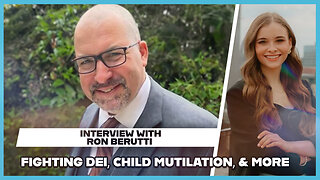 49:34
49:34
PMG
16 hours ago $0.50 earned"Hannah Faulkner and Ron Berutti | NEW SUPREME COURT CASES"
17.2K1